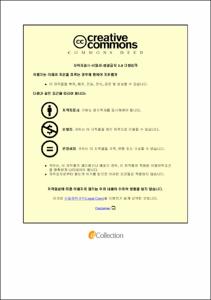Exploration of tumor microenvironment using multiplexed immunohistochemistry and its association with response in advanced or metastatic renal cell carcinoma treated with immune checkpoint inhibitors
- Abstract
- Immune checkpoint inhibitors (ICIs) such as anti-programmed-death-1 (PD-1) and cytotoxic T lymphocyte protein-4 (CTLA4) inhibitors, are important treatment options for patients with advanced renal cell carcinoma (RCC). The tumor microenvironment (TME) in ICI-treated patients remains largely unknown. In this study, 71 patients were treated with ICIs between July 2015 and June 2020: 20 patients were treated with nivolumab plus ipilimumab as first-line therapy and 51 patients were treated with nivolumab monotherapy as second/third-line therapy. Multiplexed immunohistochemistry (mIHC) was performed to define the TME, which included various T cell subsets, B cells, macrophages, and dendritic cells. In the nivolumab plus ipilimumab group, the objective response rate (ORR) and disease control rate (DCR) were 47.1% and 64.7%, respectively. The density of CD8+ cytotoxic T cells (P=0.027), specifically CD103+ CD8+ tissue-resident T cells (P=0.046), CD137+ CD8+ T cells (P=0.005), Foxp3- CD4+ helper T cells (P=0.025), Foxp3+ CD4+ regulatory T cells (P=0.014), and CD68+ CD206- M1 macrophages (P=0.007) were significantly higher in responders than in non-responders. Patients who experienced initial disease progression had a lower infiltration of CD68+ CD206- M1 macrophages than those who did not (P=0.008). The median progression-free survival (PFS) was 11 months, and a high density of CD8+ cytotoxic T cells (P=0.030), Foxp3- CD4+ helper T cells (P=0.036), CD137+ CD8+ cytotoxic T cells (P=0.024), and CD68+ CD206- M1 macrophages (P=0.054) was associated with better PFS. In the nivolumab group, ORR and DCR were 38.8% and 61.2%, respectively, and median PFS was 6.3 months. Response to nivolumab monotherapy was not significantly associated with the infiltration of T cell subsets and B cells, but patients who had initial disease progression with nivolumab had a higher infiltration of CD68+ CD206+ M2 macrophages than those who did not (P=0.012). A high density of CD137+ CD8+ cytotoxic T cells (P=0.016), CD137+ CD4+ cytotoxic T cells (P=0.088), and a low density of CD68+ CD206+ M2 macrophages (P=0.067) were associated with better PFS. When quantifying the infiltration of immune cells according to the International Metastatic RCC Database (IMDC) risk groups, CD68+ CD206+ M2 macrophages were more highly infiltrated in high-risk patients than in intermediate- or favorable-risk patients. The density of T cell subsets significantly correlated with that of CD68+ CD206- M1 macrophages and CD20+ B cells, and the density of PD-L1+ cells significantly correlated with that of various immune cells. Therefore, through comprehensive TME analysis, CD137-expressing T cell subsets and M1/M2 macrophages were significantly associated with ICIs efficacy. This suggests that CD137 could be a predictive marker for selecting treatment options, and novel strategies targeting CD137 or macrophages should be further explored in advanced RCC.
- Issued Date
- 2022
- Awarded Date
- 2022-02
- Type
- dissertation
- Alternative Author(s)
- Jwa Hoon Kim
- Affiliation
- 울산대학교
- Department
- 일반대학원 의학과
- Advisor
- 이재련
- Degree
- Doctor
- Publisher
- 울산대학교 일반대학원 의학과
- Language
- eng
- Rights
- 울산대학교 논문은 저작권에 의해 보호 받습니다.
- Appears in Collections:
- Medicine > 2. Theses (Ph.D)
- 파일 목록
-
-
Download
 200000594447.pdf
기타 데이터 / 1.1 MB / Adobe PDF
200000594447.pdf
기타 데이터 / 1.1 MB / Adobe PDF
-
Items in Repository are protected by copyright, with all rights reserved, unless otherwise indicated.